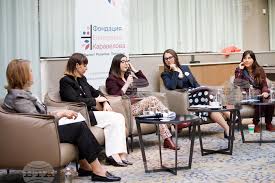Female representation in Bulgarian politics still low after latest elections, Foundation says

Sofia – Women account for 27% of Bulgaria’s new National Assembly (parliament), elected by a snap vote on June 9 and sworn in on June 19.
After the European elections, which, in Bulgaria, coincided with the vote for the national legislature, the country sent only four women to the European Parliament, where it has been allocated 17 seats, the Ekaterina Karavelova Foundation says in an analysis published on its website.
The foundation’s mission is to encourage women to spearhead the process of transformation in society.
It recalls that the percentage of women in the previous five Bulgarian parliaments was around 24%. In its recent history, Bulgaria has never reached the minimum of 30% recommended as far back as 1995 by the UN Economic and Social Council for women’s representation in national legislative bodies, the foundation says.
The proportion of female candidates on the Bulgarian parties’ tickets to the European Parliament was around 30% this time, the analysis shows. None of the parties which got to send representatives to the European legislature had a woman at the top of the candidates’ list.
The four women to represent Bulgaria in Strasbourg are Eva Maydell (GERB), Elena Yoncheva (Movement for Rights and Freedoms), Tsvetelina Penkova (Bulgarian Socialist Party) and Rada Laikova (Vazrazhdane). Penkova rose to an electable position thanks to the preference marks she got from voters, which caused a re-ordering of the BSP candidates’ list.
The increase in the share of women in the National Assembly from 24% to 27% is partly due to the higher level of female representation among those elected on the Velichie ticket. The party’s 13-member parliamentary group includes six women (46%).
Central Election Commission data show that the share of women in the seven groups in the current 50th National Assembly is as follows: GERB-UDF 23%, Movement for Rights and Freedoms 29%, Continue the Change – Democratic Bulgaria 30%, Vazrazhdane 23%, Bulgarian Socialist Party 26%, There Is Such a People 18%, and Velichie 46%. (The groups are listed by number of parliamentary seats, from largest to smallest.)
As before, the constituencies of Gabrovo, Sofia Region and Yambol have not put any women in the National Assembly, and Haskovo is now on the list as well. The largest number of women have been elected from Constituency No. 25 in Sofia City and from Dobrich.
Many barriers exist to the equal participation of women and men in Bulgarian politics, according to the analysis. Women are not less interested in politics than men are, to judge from the fact that women usually account for half of voters who go to the polls, and sometimes even more, the foundation says.
Given that not many women appear in electable positions on candidates’ lists, it is not surprising that their representation in the National Assembly is low. In addition to the order in which the nominees are listed, another hurdle has to do with the traditional roles of the two sexes and the dilemma of career versus family.
Political parties fail to recognize the problems of women and to support their development. There are also systemic factors such as economic inequalities, the feminization of poverty, gender discrimination and gender-based violence, the foundation says.





